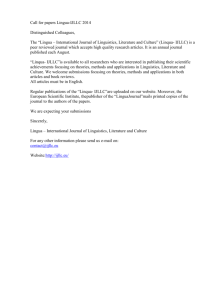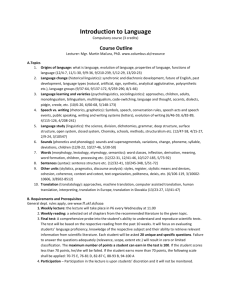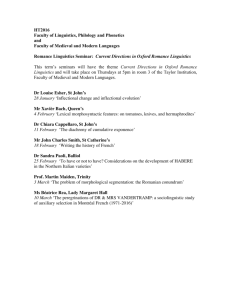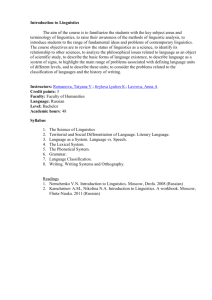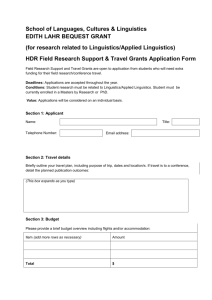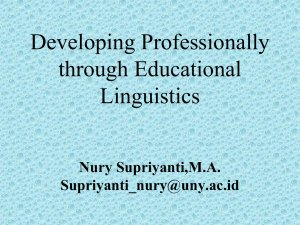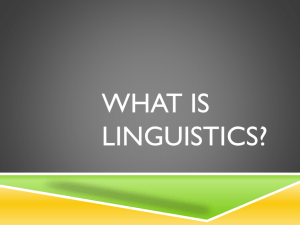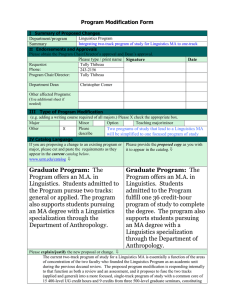Why Applied Linguistics?
advertisement
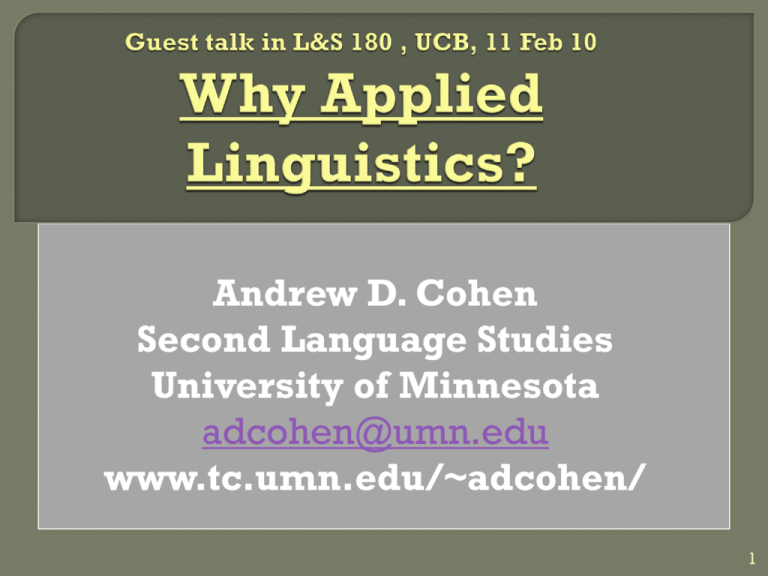
Andrew D. Cohen Second Language Studies University of Minnesota adcohen@umn.edu www.tc.umn.edu/~adcohen/ 1 Academics and practitioners engaged in: • linguistics, • L2 acquisition, • language pedagogy, • language assessment, • communication studies, • forensic linguistics, • lexicography, • stylistics, • translation/interpretation, • language use in the health and human services, • the uses and misuses of language in society. 2 In search of applied linguistics: an ongoing process of definition and redefinition. It encompasses those fields addressed in presentations at the annual conference of the American Association for Applied Linguistics (held each Spring) and at the of the International Association of Applied Linguistics (AILA) World Congress every three years (next in Beijing, 23-28 August 2011). 3 Their input directly or indirectly leads to tips for L2 teachers and learners, is incorporated into pedagogical guides for L2 teaching, L2 textbook materials, and websites. 4 Currently 15 federally-funded Language Resource Centers across the U.S. have served to demonstrate the myriad of ways in which applied linguists can be of service to the L2 teaching profession. 5 The LRC’s are a major conduit for: • summer institute courses for language teachers, administrators, researchers, and language learners, • action projects for creating teaching materials in printed form and on websites, • research on aspects of language teaching and learning, • innovative language assessment efforts, • conferences on key topics in applied linguistics. 6 Depends on whom you ask and whom you hear from. Prof. Kramsch will have her list! Here are just a few that I hear about: • The role of sociocultural theory in language development • Corpus linguistics in materials development • L2 pragmatics in teacher development and in the classroom • Dynamic assessment in the classroom 7 English departments, schools of education, programs in second language studies or ESL, translation/interpretation programs, language and literature departments. 8 University of Hawai’i Northern Arizona, Flagstaff University of Arizona, Tuscon Georgia State University of Wisconsin, Madison University of Maryland Penn State San Francisco State Where else? 9 Professorial positions and university staff (language center positions, administrative positions, etc.) Language teaching Language teacher development Curricular development Language assessment/test development Translation Research efforts (in the government, in the schools, at university centers, etc.) Government work (including military efforts – e.g., in interrogation and espionage) 10


